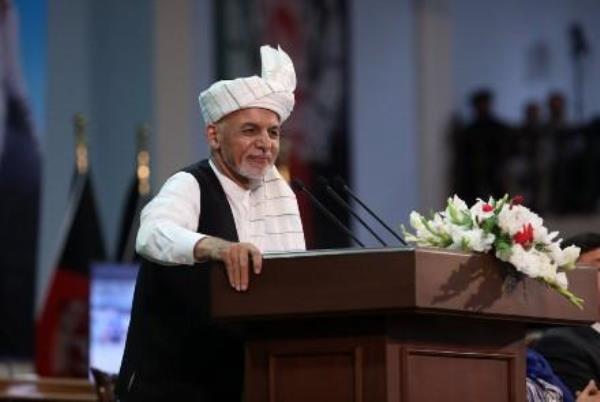As the release of 400 high-value Taliban prisoners begins, President Ashraf Ghani in a conversation with the Council on Foreign Relations on Thursday said that those who are released might pose a danger to Afghanistan, the United States and the world, but that it was necessary for peace.
The conversation was hosted by James B. Cunningham, a senior fellow of the Atlantic Council and former US ambassador to Afghanistan.
Ghani expressed appreciation for the Loya Jirga for approving the release of the 400 Taliban prisoners and said the Jirga “resolved what legally could not be resolved.”
However, Ghani also mentioned his concerns.
“The list is likely to pose a danger both to us and to you and to the world because it is the drug dealers and hardened criminals–that has been shared with all our allies and friends–but again this is a step that we have considered necessary,” Ghani said.
“Until now, there has been a lot of pressure, requests from the Afghan government,” Ghani said. “Now the balance shifts because we have taken all the risks because we are a state. We were not party to an agreement to release 5,000 Taliban but out of the imperative of wanting peace in the conviction, we did it.”
President Ghani said that Afghans are focusing on a key goal which is peace and an end to the decades of violence in the country.
He said that the Afghan people will not accept an attempt by the Taliban to seek dominance in Afghanistan.
“The Taliban cannot look for dominance. If they look for dominance, you know Afghan society, it will not accept dominance. It has to embrace it. They need, unlike the relations with the United States where they said they had the time and you the clocks, the rest of the Afghans have time. This time has to be either used productively, which all of us are praying for, or it can return into destruction,” Ghani said.
He also talked about Afghanistan’s relations with the region and said the country has developed good ties with Central Asia under his leadership.
In response to Iran’s relations with the Taliban, Ghani said, “With Iran, we have a bilateral relationship. Sanctions have been (an) important part of it so we’re complying with sanctions, but all the issues are on the table. It’s a dialogue that is proceeding constructively and in terms of a stable Afghanistan, I think they are playing in the diplomatic arena (in) a constructive role.”
On relations with Pakistan, Ghani said: “On the negative side, if events (go) out of control in Afghanistan, what would be the cost to Pakistan? Pakistan is the country that would be most diversely affected by, God forbid, a downward trend in Afghanistan.”
This comes as the Afghan government on Thursday started the release of 400 high-value Taliban prisoners by releasing 80 of them in the first phase. The move is expected to open the way for intra-Afghan negotiations.











